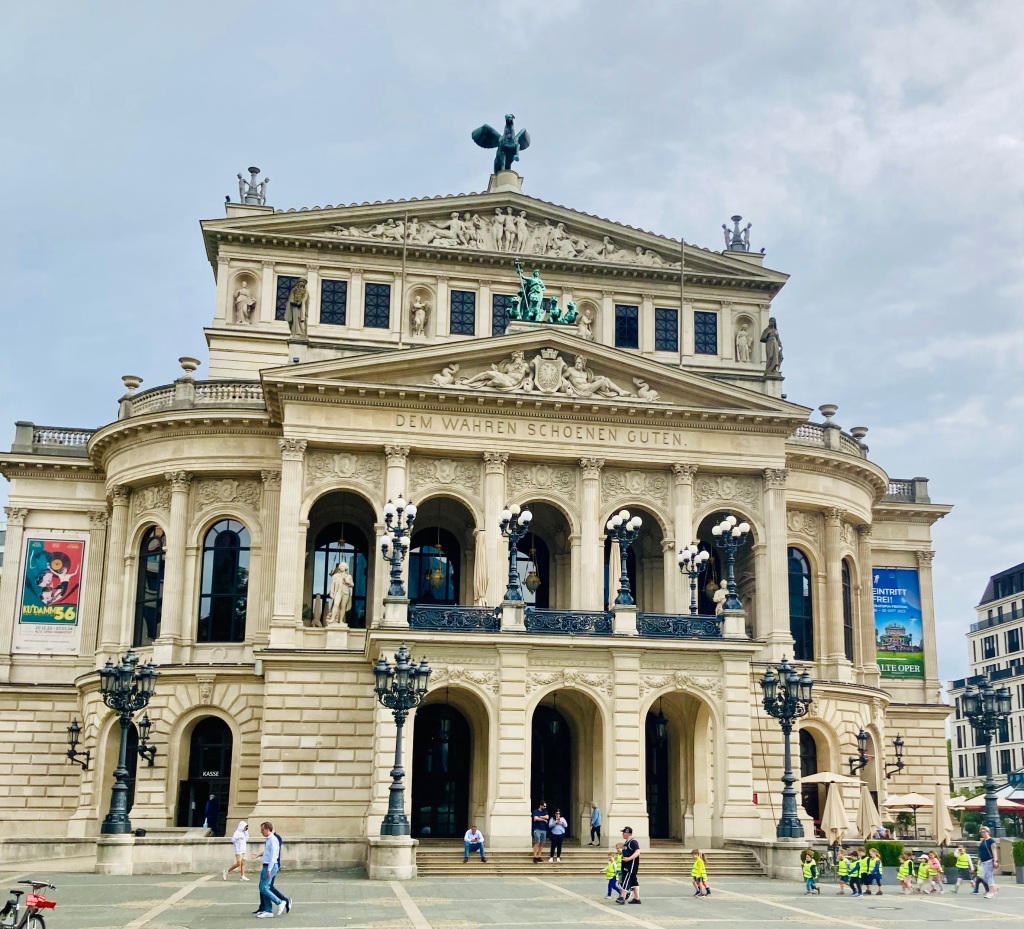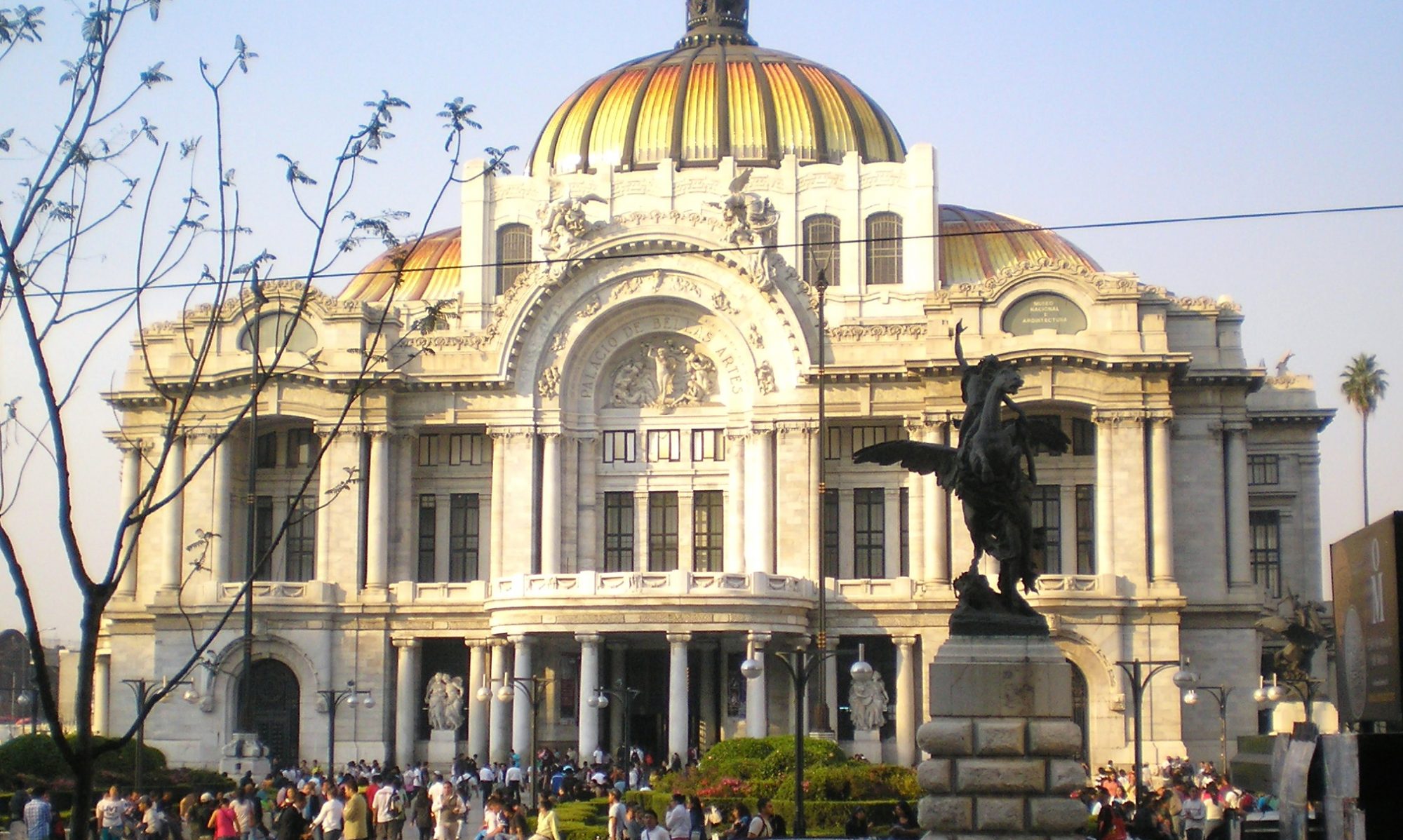
On my way to Bayreuth, I stopped by an old favorite in Frankfurt, the Alte Oper, although it’s quiet in the summer save the responsible children crossing in front.
In Bayreuth, I’ll be seeing Tristan und Isolde and have been thinking today of E. M. Forster, whose early odd novel The Longest Journey (1907) draws throughout from Wagner’s works. Siegfried and Parsifal play the most obvious roles, with characters clearly modeled after the (anti) heroes, but there are also occasional mentions of Tristan. Rickie, the protagonist and struggling author/lover/human, tries to identify what his craft is missing and wonders at music’s ability to inspire emotion, saying “for music has wings, and when she says ‘Tristan’ and he says ‘Isolde’ you are on the heights at once.”
I wonder at Forster’s fascination with Wagner overall. Of course, authors and artists at the turn of the century were widely intrigued and variously infatuated with how Wagner’s operas operated and what they were able to accomplish with regard to an audience’s experience. But Forster himself didn’t attend the Bayreuth Festival until he was in his 70’s, and afterward recorded “Revolution at Bayreuth,” a travelogue broadcast talk for BBC in 1954 that wasn’t altogether flattering when one reads between the lines. Perhaps we’re all a little more susceptible to opera’s romance in our youth.
